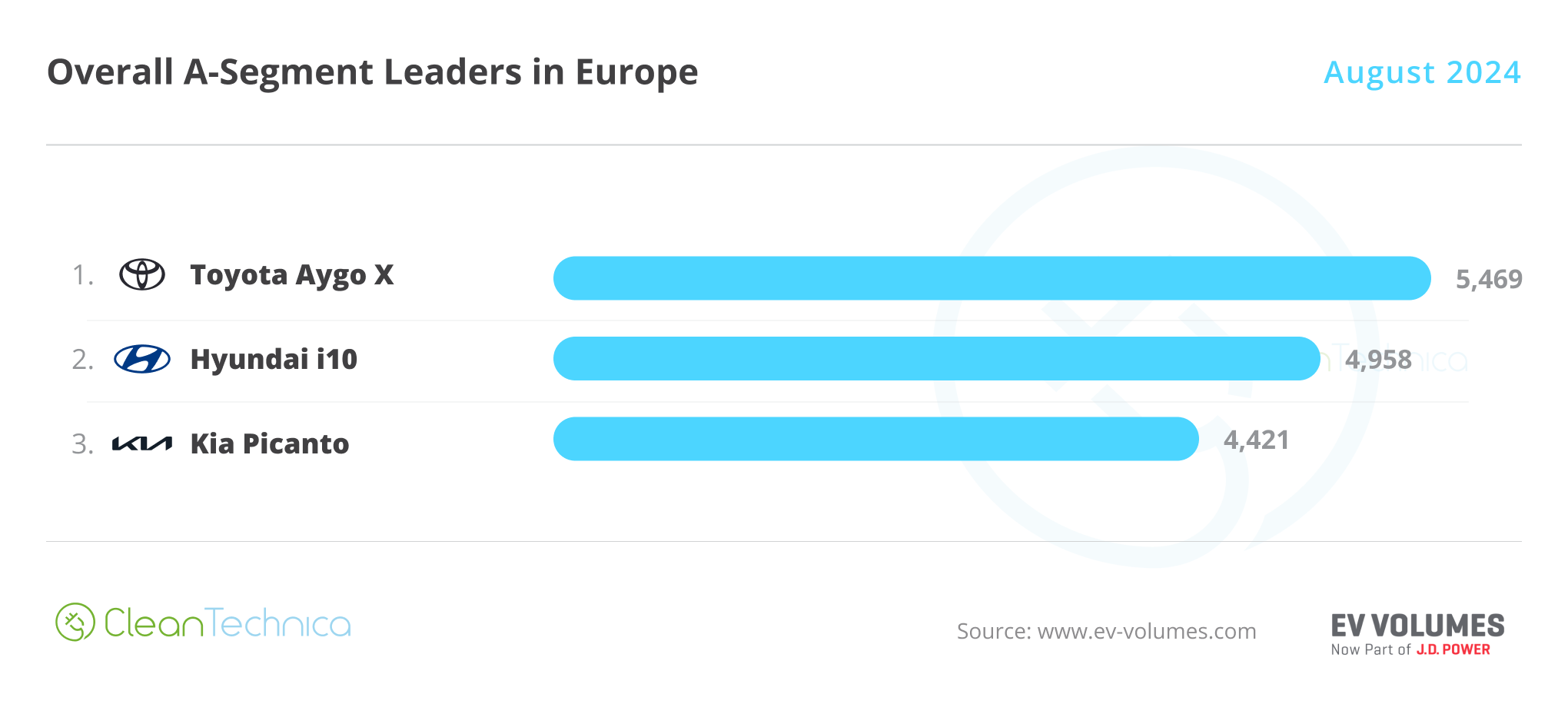
The US electric truck startup Nevoya has figured out how to make an irresistible offer to fleet owners: Ditch the diesel trucks, and Nevoya’s AI-enabled logistics platform will save money, improve customer satisfaction, and probably make your drivers happier, too. The company has already rolled out its business model to several leading shippers in California and it just raked in a new haul of $9.3 million in seed financing, too. The new financing will enable Nevoya to expand its territory and its fleet, just in time to take advantage of the new Tesla Semi Class 8 electric truck, among other opportunities.
Electric Trucks Good, Electric Trucks With Purpose-Built Logistics Platform Better
There is a lot to unpack in Nevoya’s business model, but two basic principles stand out. First, the company addresses an efficiency gap. While many fleet owners are interested in electric trucks or have already incorporated them, typically they slot their new zero emission trucks into the same old software platform used for their old diesel fleet. When that happens, the fleet owner can miss out on performance and cost-saving opportunities unique to EVs.
Second, Nevoya has a cautious perspective on the state of EV battery technology as applied to long distance shipping. Instead of pursuing cross-country routes, Nevoya is focused like a laser on medium-distance routes of 250 miles or less.
“People look at EV trucks and they think they should be able to replace a diesel truck with an EV truck one-to-one, but that just isn’t the case,” Nevoya CEO and co-founder Sami Khan told the trade publication FreightWaves last September. He advised waiting another 5-10 years for EV batteries to improve before investing in electric trucks for long distance hauling on a cross-country scale.
The sweet spot, according to Khan, is the confluence of the current state of electric truck battery range with a rather large slice of the freight-moving business.
“Fifty percent of freight moves under a distance of 250 miles, which incidentally is the range of most of the EVs available in the market today. These are the use cases that EVs were born to serve,” Khan told FreightWaves.
The ongoing driver shortage also factors into the 250-mile limit. “Hardworking drivers deserve time to recharge (like our trucks),” is Nevoya’s pitch to prospective truck drivers.
“When you drive with Nevoya, you’re guaranteed to be home every night. Our short-haul routes mean you’re never more than a few hours away from home, and our state-of-the-art electric vehicles are equipped with the latest technology for maximum safety and comfort.”
Why Did Nevoya Choose Electric Trucks From Freightliner When The Tesla Semi Is Just Around The Corner?
That focus on the 250-miles-or-less freight market explains why Nevoya did not have to wait around for Tesla to roll out its Semi class 8 heavy duty truck. As of 2022, the Semi was supposed to have a battery range of 500 miles when hauling a full load. Though that applied to relatively low traveling speeds of 55-60 mph, it’s still more than required by Nevoya’s business model.
The actual range also depends on what “fully loaded” means. After all, fully loaded with potato chips is different from fully loaded with cans of soda. All that aside, a 500-mile battery is more expensive than a 250-mile battery, and other electric trucks are already on the market with a battery range that hits 250 miles or thereabouts.
The timeline also comes into play. Nevoya launched in 2023 and its client roster already includes to-be-named Fortune 500 haulers in California. Meanwhile, plans for the Tesla Semi were unveiled back in 2017 but full volume production has not happened yet. That will happen sometime before the end of this year, but that was too late for Nevoya, which currently fields eCascadia electric trucks from Daimler North America under the Freightliner umbrella, which are available in 155, 220, and 230-mile battery ranges.
Not to worry, Tesla fans. There is plenty of room in the pool. I reached out to Nevoya regarding its plans moving forward, and the company currently has orders placed at Tesla and at Volvo, too.
Electric Trucks Just Keep Coming
Nevoya’s new round of seed financing was spearheaded by Lowercarbon Capital, with participation from Floating Point and LMNT Ventures alongside existing investors Third Sphere, Stepchange, and Never Lift, with an assist from Qasir Younis (Founder and CEO of Applied Intuition), among other individuals. It’s a vote of confidence for electric trucks here in the US, at a time when an abrupt shift in federal vehicle policy has combined with a crazy quilt of tariff directives to dampen enthusiasm for zero emission mobility.
Or not, as the case may be. Nevoya shared an advance press announcement about the $9.3 million seed financing with CleanTechnica and followed up with some additional comments from Khan by email. Here they are verbatim:
On policy changes: “Unlike subsidy-dependent competitors, Nevoya has built a self-sufficient, demand-driven model that creates competitive advantages as policy changes create supply-demand imbalances. Our customers, which include Fortune 500 shippers and leading 3PLs [Third Party Logistics], remain driven by their own net-zero commitments rather than regulatory mandates. The combined policy effects may paradoxically strengthen Nevoya’s market position by reducing competition from subsidy-dependent players while maintaining robust enterprise demand for zero-emissions solutions.”
On tariffs: “While tariffs are expected to raise the cost of imported EVs, the impact will likely be more pronounced in the passenger car industry than in the trucking sector. The EV trucking sector does rely on some imported components, meaning production costs could rise. However, industry partners tell us they have already adjusted their supply chains, with many increasing domestic manufacturing to offset tariff effects. Although the tariffs may slow overall EV adoption, they create a market dynamic that uniquely benefits Nevoya. Demand for zero-emission trucking remains strong among our customers, while a shrinking pool of competitors opens the door for greater growth and market share.”
The Nevoya AI-Driven Transportation Management System
Nevoya is not the only electrification game in town, but the company aims to grow its fleet market share with a singular focus on AI and machine learning to ensure that electric trucks have a competitive edge over diesel, overcoming skepticism on the part of legacy fleet owners. “The global electric truck market is projected to be valued at $125 billion by 2030. As the sector explodes, Nevoya is proving that zero-emissions trucking isn’t just environmentally superior — it’s economically dominant,” the company asserts.
“We don’t just move freight — we embed ourselves in our customers’ operations, uncovering insights that others miss,” adds Khan. “This customer-centric approach drives our technology development, ensuring the transition to zero-emissions trucking is seamless.”
One minor but potentially significant appeal of Nevoya’s AI-driven system is word choice. Instead of coming up with a futuristic moniker for its AI platform, Nevoya simply calls it the “Transportation Management System.” These door-openers are familiar words to legacy fleet operators everywhere.
Behind the word choice, though, is a purpose-built system that treats fleet electrification as a whole-of-operations endeavor. Nevoya lists the following attributes:
- Intelligent orchestration of fleet utilization, route optimization, and load balancing that maximizes efficiency while minimizing energy consumption.
- Predictive operations with dynamic charging schedules, battery management, and energy-aware routing that eliminate operational friction.
- Real-time visibility, providing customers with emissions analytics, cost breakdowns, and performance insights that support strategic decision-making.
- Continuous optimization using machine learning algorithms that improve system-wide performance with every mile driven.
Hold on to your hats. In April, Daimler announced that its Greenlane EV charging venture enlisted Nevoya as the first customer for its new flagship facility in Colton, California.
“The two companies plan to scale the partnership to include up to 100 of Nevoya’s electric trucks, leveraging Greenlane’s charging network as part of a broader collaboration to further advance sustainable freight solutions,” Daimler explained.
Photo (cropped): With a new $9.3 million seed financing round in hand, the US startup Nevoya has set out to prove that electric trucks can beat diesel at their own game (courtesy of Nevoya).
Sign up for CleanTechnica’s Weekly Substack for Zach and Scott’s in-depth analyses and high level summaries, sign up for our daily newsletter, and follow us on Google News!
Have a tip for CleanTechnica? Want to advertise? Want to suggest a guest for our CleanTech Talk podcast? Contact us here.
Sign up for our daily newsletter for 15 new cleantech stories a day. Or sign up for our weekly one on top stories of the week if daily is too frequent.
CleanTechnica uses affiliate links. See our policy here.
CleanTechnica’s Comment Policy




